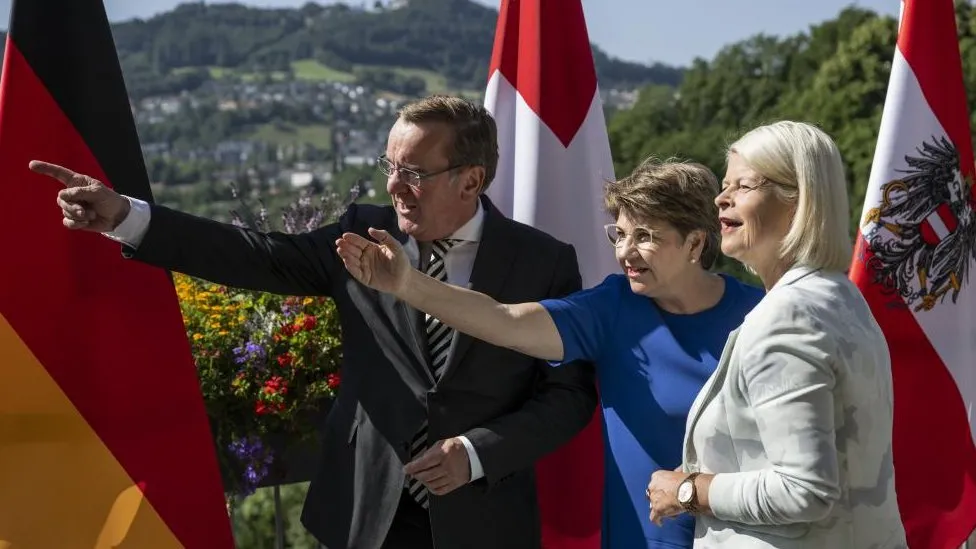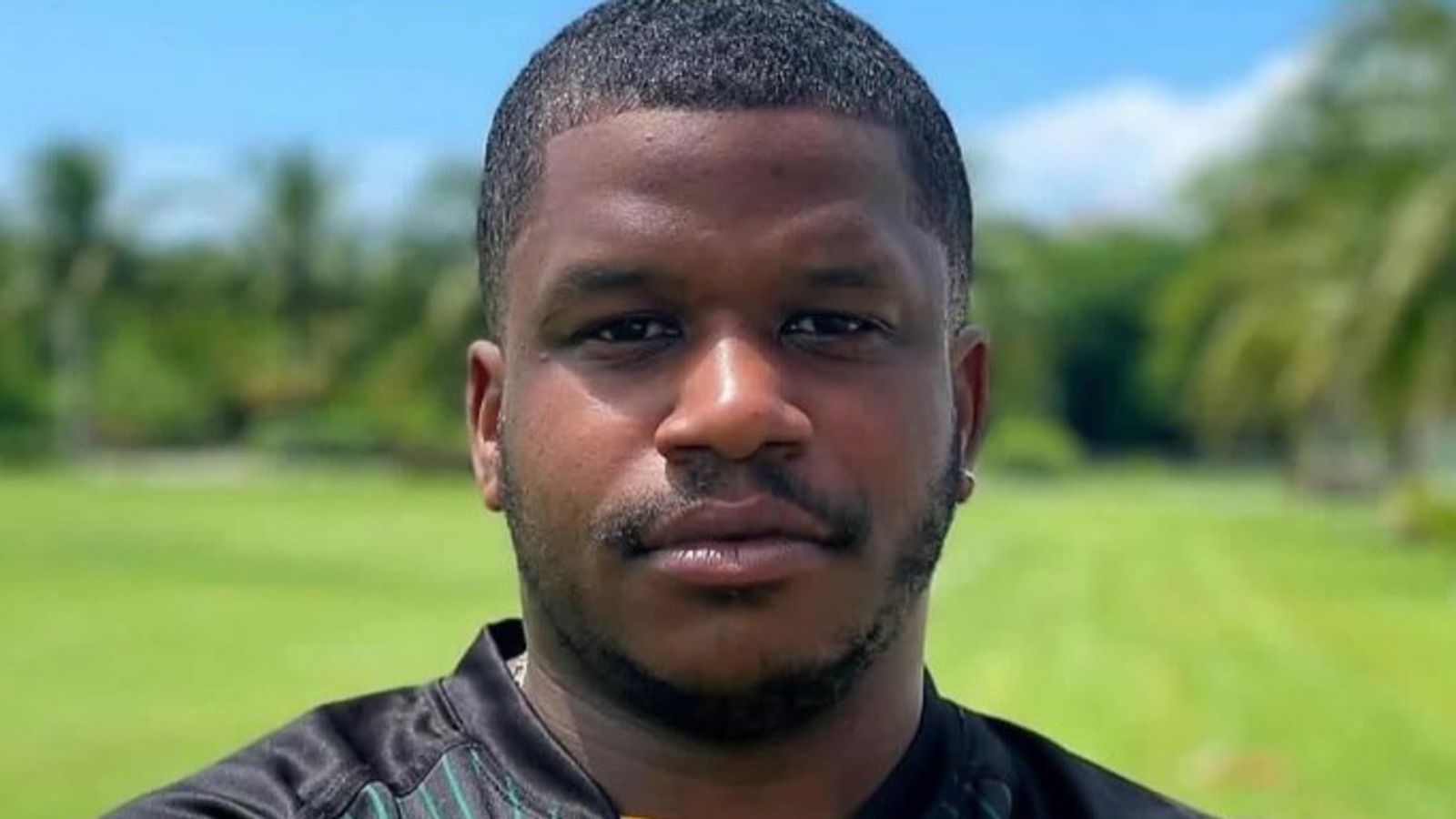Neutral Swiss and Austrians join Europe's Sky Shield defence
Switzerland and Austria have signed a declaration of intent to join the European air defence system Sky Shield.

The system was initiated by Germany following Russia's invasion of Ukraine, and is designed to allow European countries to buy defence systems together, and train together.
It's being viewed as a historic moment for neutral Switzerland.
But some Swiss fear the move compromises their country's long standing neutrality.
Joining a Europe wide defence system would have been unthinkable just a few years ago, but Russia's invasion of Ukraine has focused minds.
The continent is unstable, and for many European countries an upgrade of air defences has become inevitable. The Swiss government says working with European neighbours on a common system makes both strategic and financial sense.
Austria is also a neutral country, and the government in Vienna argues that by pooling military resources it is able to maintain that status.
This is not the first dent in Switzerland's traditionally strict neutrality.
As part of Nato's partnership for peace it has had a peacekeeping battalion in Kosovo for two decades. And, to Moscow's anger, it has joined EU sanctions against Russia.
Nineteen countries have now signed up for the Sky Shield initiative, including the UK, the Nordic and Baltic countries, Hungary, Romania and Bulgaria.
But some right-wing Swiss politicians fear Sky Shield is a compromise too far.
If an attack heading for one of its Sky Shield neighbours flew over Switzerland, for example, would the Swiss shoot it down, even if it wasn't involved in the conflict?
In signing an agreement to join the initiative, Switzerland and Austria have stressed their neutrality remains unchanged, but that hypothetical question hasn't really been answered. Probably they are hoping such a situation would never arise.
But the debate over sanctions, and now over Sky Shield, is just part of a wider Swiss soul-searching over neutrality.
Its historic origins dating back to the 19th Century have become obscured by the myth. At the time, Switzerland was sandwiched between much bigger, often warring powers, and it suited them to have a neutral buffer in between.
During World War Two, the Swiss defended their borders, but carefully stayed out of the conflict by making compromises with both Allied and Axis powers. Their population, and their cities, emerged virtually unscathed - which contributed to Switzerland's economic success today.
But now Switzerland is a member of the United Nations, and the UN has said Russia's invasion is a violation of the UN Charter.
Last month the Swiss parliament voted against a proposal to allow Swiss-made weapons and ammunition to be sent to Ukraine.
The decision is out of step with Switzerland's neighbours and some here have become frustrated by what they see as an outdated construct of neutrality.
Ukrainian President Volodymyr Zelensky made a direct appeal to Swiss MPs, saying his country needed Swiss weapons to restore peace.
Switzerland has Leopard tanks languishing unused at home when they could be deployed in Ukraine.
Negotiations are continuing in parliament over how to find a way to adapt the laws on weapons exports, to allow support for Ukraine.
"Traditional neutrality is not sustainable, it's not morally acceptable in my view," Social Democrat MP Jon Pult told me earlier this year.
"If Swiss neutrality means we're somehow the advocates of international law and of the UN charter then I'm ok with neutrality, because then Switzerland can be a power of peace and freedom and rules-based world order."
But the far-right Swiss People's Party has condemned the signing as pushing the country into the arms of Nato.
-bbc







